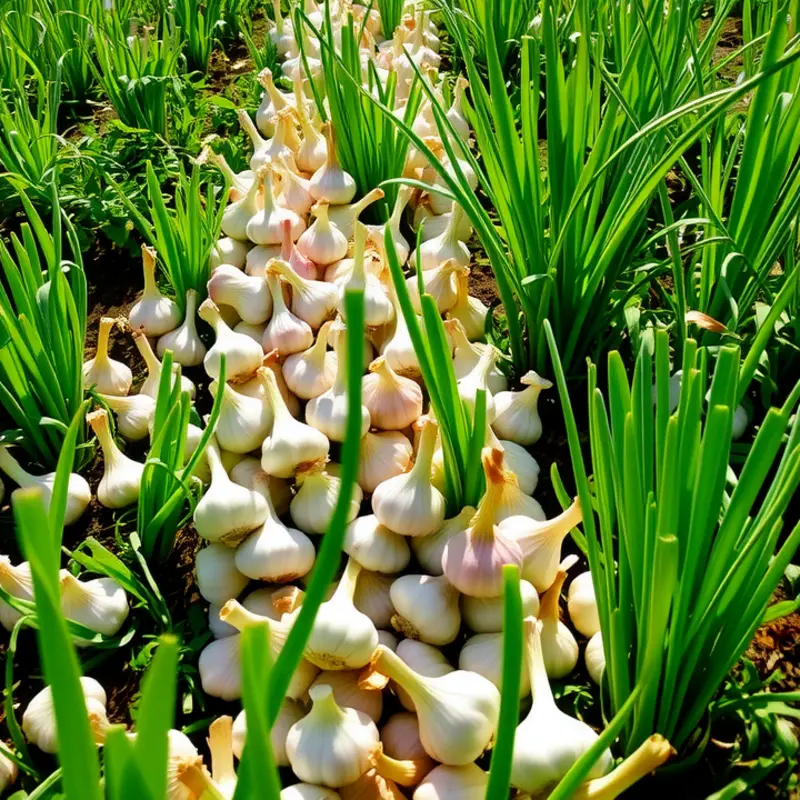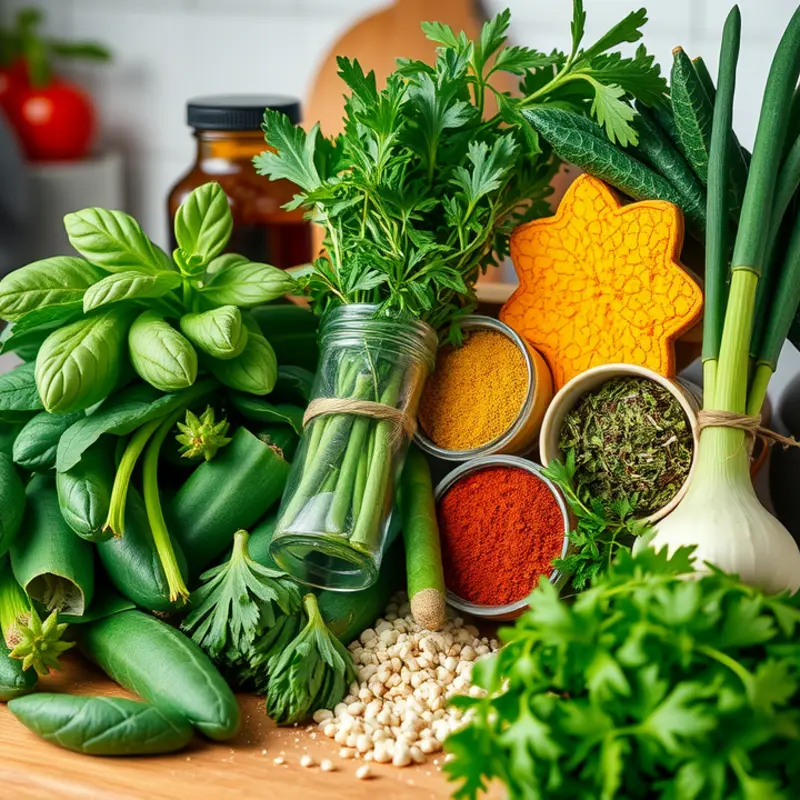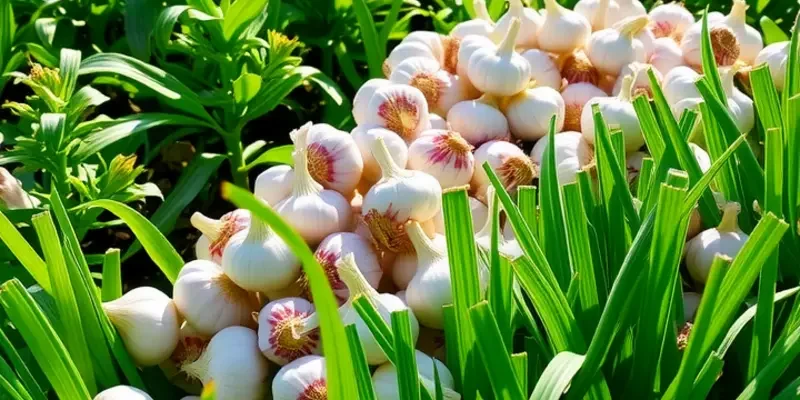Home cooks often find themselves in need of alternatives to onions, whether due to dietary restrictions or personal preferences. While onions add depth and flavor to countless dishes, there are numerous substitutes available that can replicate their essence. This guide is designed for those who seek practical, flavorful alternatives to onions, making it easier to create delicious meals without compromising on taste. Let’s explore some of the best substitutes that cater to various dietary needs.
Vegetable Medley: The Best Natural Onion Alternatives

Exploring natural alternatives to onions introduces a range of flavorful and versatile vegetables that not only fill the gap in recipes but also elevate your culinary creations. By understanding the unique characteristics and culinary applications of garlic, leeks, shallots, chives, and fennel, you can replicate and even enhance the classic allium taste onions provide.
Garlic is perhaps the most famous substitute for onions. Known for its pungent and aromatic qualities, garlic brings a depth of flavor that is both distinctive and complementary to many dishes. When raw, it’s sharp and spicy, yet roasting reveals a sweet, nutty essence. A single clove can often suffice in providing enough zest in place of an onion, particularly in soups, stews, or stir-fries.
Leeks, related to both onions and garlic, offer a milder alternative with a touch of sweetness and a hint of earthiness. Use the white and light green parts of leeks for a subtle onion-like quality that works exceptionally well in potato dishes, quiches, and broths. Their tender texture when cooked also makes them perfect for blending into sauces or purees.
Shallots are smaller, elongated cousins to onions, loved for their delicate flavor that seamlessly merges the best qualities of onions and garlic. Shallots impart a mild spice with a hint of sweetness, ideal for both raw and cooked applications. Sauté them for sauces, dressings, and vinaigrettes, or use them raw in salads for a nuanced bite.
Chives, the slender, green cousin in the allium family, provide an understated onion flavor with a splash of color. Best used fresh, their light onion notes make them perfect for garnishing dishes like omelets, mashed potatoes, and creamy dips. Notably, they retain their flavor best when added at the end of cooking.
Finally, fennel offers an intriguing substitute despite its distinct flavor profile. With a sweet, slightly licorice-like taste when raw, fennel becomes milder and more complex upon cooking, echoing the sweetness of caramelized onions. Incorporate sliced fennel in salads, or braise it alongside proteins for a complementary flavor profile.
Each of these vegetables offers a unique taste experience, allowing for creativity in substitution and innovation in recipes. For those seeking to explore more about flavor enhancement without extra sodium, consider these tips on boosting flavor without salt. By integrating these natural onion alternatives into your repertoire, you can achieve desired flavors while diversifying your culinary toolkit.
Herbs and Spices: Adding Depth Without Onions

Swapping onions for herbs and spices can transform your culinary repertoire. Onion powder is a classic substitution, mirroring many aspects of fresh onions. It offers a concentrated flavor that disperses evenly in soups, stews, and sauces. A small amount can enhance a dish without overpowering it, making it ideal when a hint of onion is desired.
Garlic powder is another powerful ally. While distinct from onions, it can add similar depth and complexity. In roasted vegetables or marinades, a dash of garlic powder mimics the savory character onions typically provide. Blending it with other seasonings enhances both its utility and flavor.
For a more vibrant kick, fresh ginger can substitute onions in many Asian-inspired dishes. Its zesty, peppery notes add a unique dimension. Sauté ginger with other spices at the start of cooking to infuse oil with its essence. Ginger complements stir-fries and curries, seamlessly adapting to different flavor profiles.
Herbal complexes like Italian seasoning or herbes de Provence provide multi-layered flavors without a single onion in sight. These blends often include basil, oregano, thyme, and rosemary, offering a fragrant bouquet to any recipe. Use them to season broths or sprinkle over grilled meats and vegetables for a taste burst.
Achieving balance is pivotal when using herb and spice substitutes. Begin with small quantities and adjust based on your palate. Herbs and spices are potent; a little goes a long way. Tailoring these substitutions requires an understanding of their unique properties and the flavors you seek to emulate.
Leveraging herbs and spices to replace onions not only diversifies flavors but also aligns with dietary preferences. Those exploring a nightshade-free diet may find this especially beneficial. For more on dietary adjustments like these, see this nightshade-free diet guide.
Harnessing the power of herbs and spices allows for creativity and personalization in cooking. Their ability to stand alone or complement other ingredients makes them invaluable in onion-free culinary practice. Experimentation is key, propelling ordinary dishes into memorable experiences without an onion in sight.
Final words
Onion alternatives are plentiful and can deliver robust flavors to your dishes without compromising your dietary restrictions. From vegetables like leeks and chives to the depth offered by herbs and spices, there are numerous substitutions to explore. Experimenting with these alternatives not only enhances your culinary skills but also encourages creative cooking. Next time you’re in the kitchen without onions, remember that flavorful dishes are still attainable. Taking advantage of these substitutes can broaden your cooking repertoire and delight your palate, paving the way for enjoyable and health-conscious meals.







